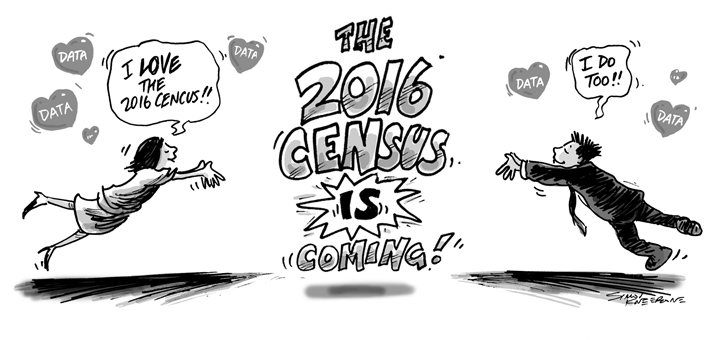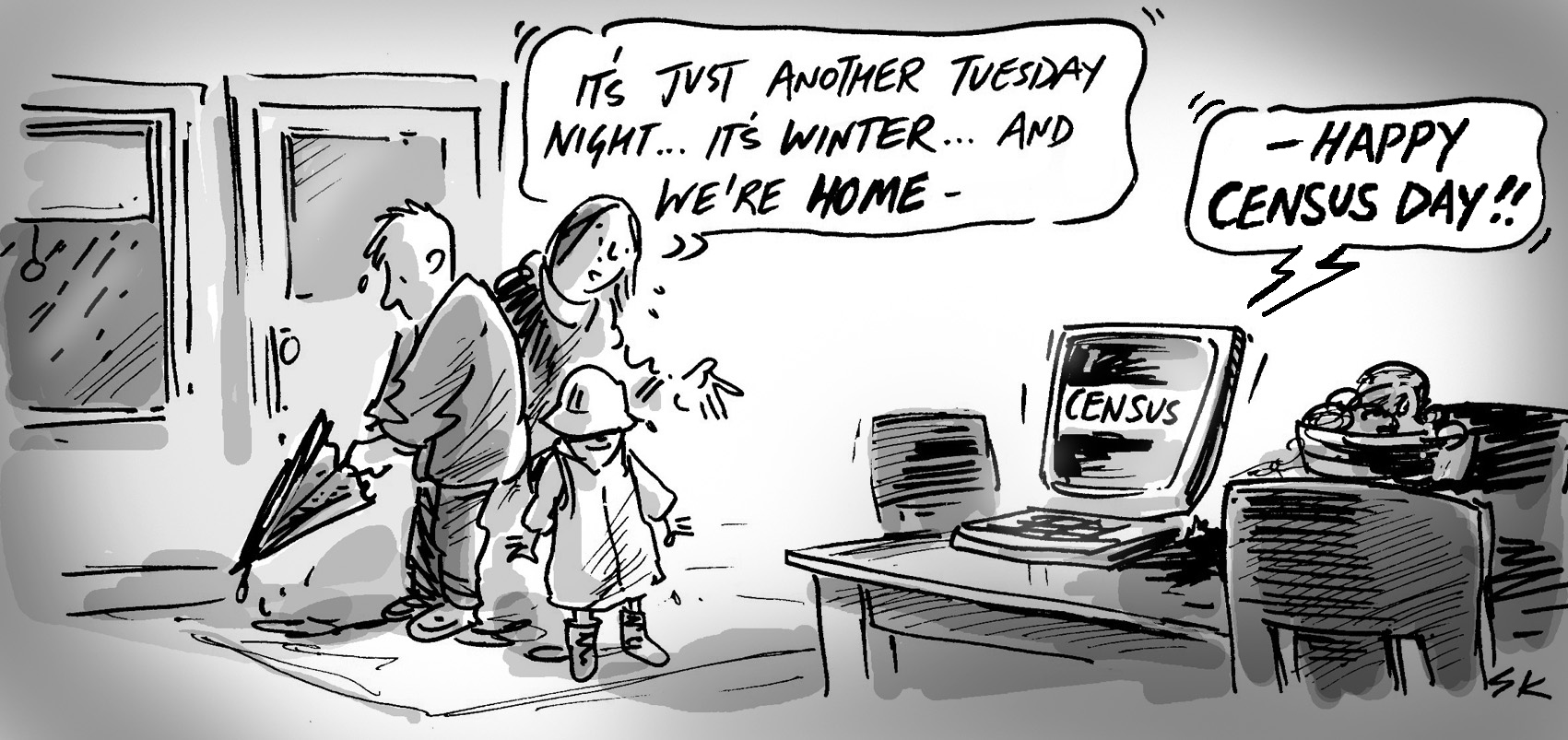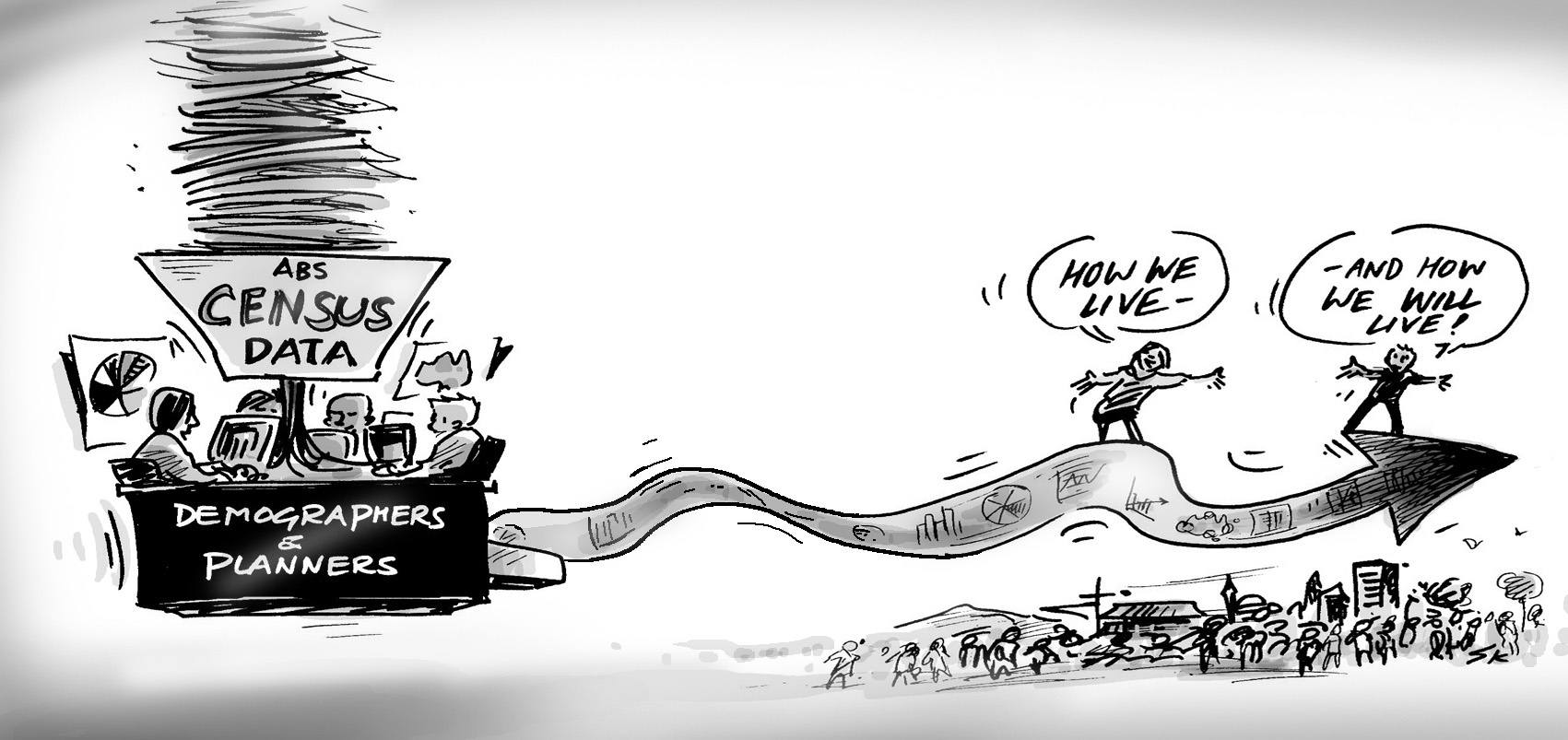With a lot of concern raised in the media over next week’s Census, we thought it fitting to answer some of the most common queries and concerns raised so far to help put your mind at ease.
Is your data safe?
Privacy is an important issue. In regards to the Census, it is important to note that names and addresses are kept securely in a separate place to your other Census data to protect privacy. And that no name identified information is ever released from the Census – statistics are only used in aggregate, as a collective to look at the characteristics of the population, rather than the characteristics of individuals. Read more about how your data is managed.
Why is data security in the spotlight now?
This Census, the ABS will keep name-identified information for longer than it has previously. Names and addresses will now be kept for up to 4 years (previously it was around 18 months) in order to link Census data sets to other collections, before being destroyed. Read more here.
Does that mean the government can link up your Census answers with your tax return or Centrelink information?
No. The ABS cannot do this and there are large penalties for this sort of information sharing. Even if it were allowed, it’s also very hard for this to occur as the questions asked by different agencies are not the same, making it almost impossible to compare the data. From a statistics perspective, if you ask a different question you cannot align the data. For example, the taxable income information you supply to the ATO is different to the income information you provide in the Census. The Census asks, “What is the usual amount you receive each week in income?” which is collected in broad income ranges and does not include any pensions or allowances.
But to reiterate, the ABS cannot and will not share any personal information with other departments or private companies. This will never happen.
Why do the ABS need your name and address?
For accuracy and verification. Again from a statistics perspective, when people provide their names and addresses in a survey, the resulting data is more accurate than if it is left anonymous.
Names and addresses have been collected as part of the Census since 1911. By providing this information, individuals can be coded to their usual residential area even if they are away from home on Census night.
Information provided in the 2016 Census is used to securely link data to other datasets for the purposes of research, but only ever released in aggregate statistical form. The ABS have said all name and address identified information will be destroyed by August 2020.
How do you get a paper Census form?
If you have received an online login via mail, you need to call the ABS on 1300 820 275 to request a paper form or the Census Inquiry Service on 1300 214 531 for general information about Census. To request a paper form, you will need your online login code from the Census mail out.
With so many requests, many people are experiencing difficulty getting through to the ABS. People have even tried calling us here at .id to get their paper Census form or find out why they haven’t received their login yet. While the .id team are avid Census fans and users of Census data, we are not the ABS and so can’t provide this service for you!
Will you get fined if you don’t complete the Census in time?
There are concerns that the ABS will fine people up to $180 per day for not completing their Census form. With people having trouble getting through to the ABS to order their forms, and the Census being compulsory, concerns are obviously heightened.
The provision of fines for non-completion of Census is only about those who outright refuse to do the Census. If you are happy to do the Census but just can’t get a form at the moment, you are not going to be fined. The $180 per day fine only applies from when someone receives a “Notice of Direction” which is a legal request to comply with the Census. This is not the same as the Census letter you receive (which is not a legal notice) and a Notice of Direction would generally only be sent when someone has outright refused to complete the Census. The ABS states this quite clearly here. Fines do not apply until you’ve been “notified of your legal obligation to do so”.
Do you have to complete the Census on the Tuesday night 9th August?
While it’s best to do the form on Census night itself, it’s not strictly necessary. The online form is already available and can be filled in right now. And it can be filled in for a few weeks after Census night as well. As long as it’s filled in with reference to Tuesday August 9th, it’s all good.
What if you haven’t received your login details?
At this point, some parts of Australia are still having paper forms delivered. About 20% of Australia’s population will still be covered in this way, so if you haven’t got your online login yet, it’s possible you’re in one of these areas and will still get a delivery, right up to Sunday 7th August.
What if you don’t get your Census form in time?
Even if you are unable to get a paper form straight away, Census field officers will be calling on households who haven’t responded from about 2 weeks after Census night, and will be able to provide paper forms or additional online logins then. You just need to remember back to August 9th.
Remember, the Census is of vital importance to Australia’s future – we use this information every day and it provides a fantastic snapshot of the nation every 5 years. It’s a very large logistical exercise so bear with it for a while!
Is there anything else you need to know about the Census?
.id specialises in analysing, enhancing and presenting Census data. Access our community profiles and see how some of the results from previous Censuses relate to your local area: Community profiles for Australia and New Zealand.









